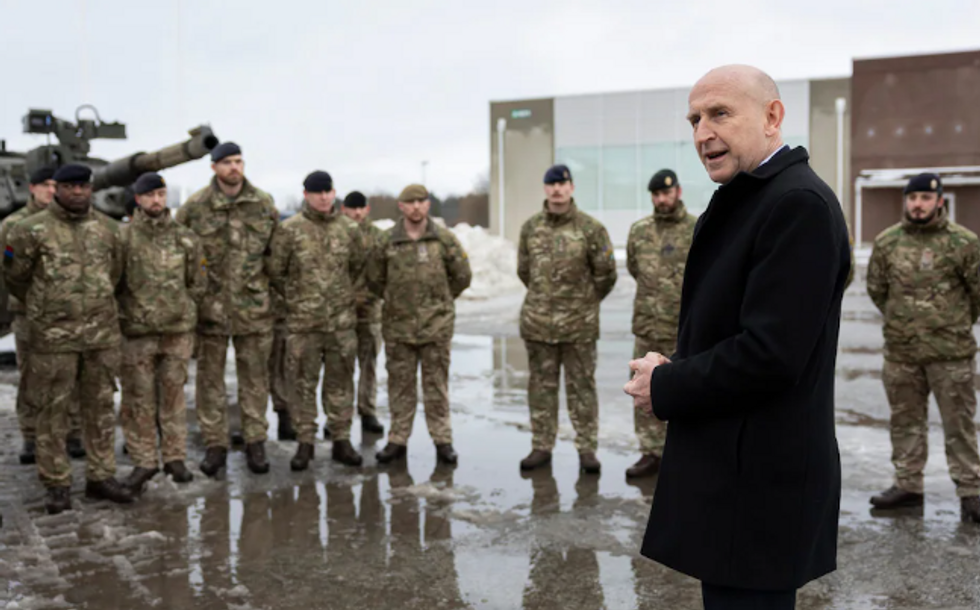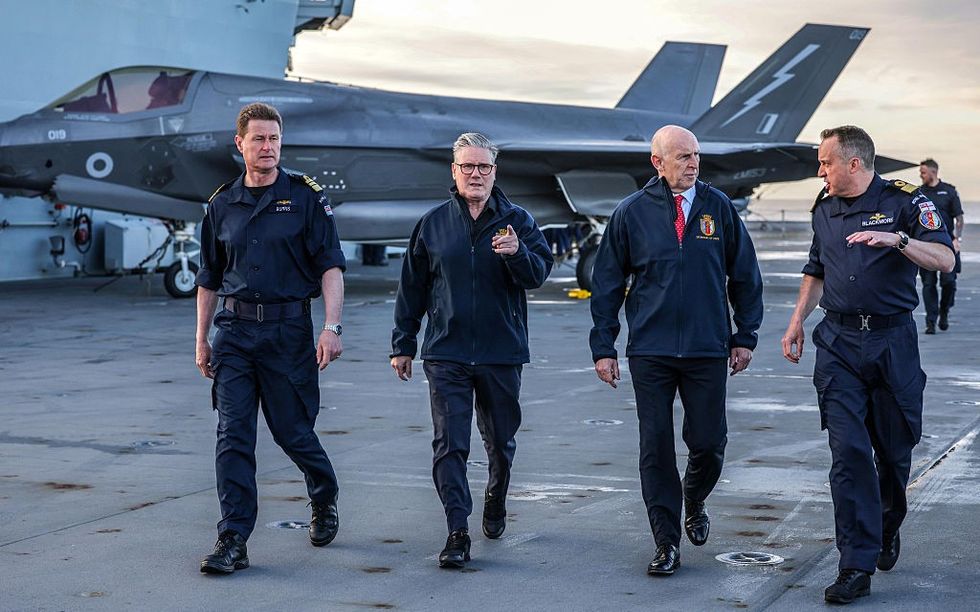British peacekeeping troops in Ukraine could reportedly be prosecuted under the European Convention on Human Rights, it has been claimed.
Defence Secretary John Healey has rejected calls to seek a derogation from the European Convention on Human Rights (ECHR), despite concerns that UK soldiers could be targeted by Russian “lawfare” tactics.
In a letter seen by The Telegraph, Healey also confirmed that the British deployment would not engage in combat but would focus on training Ukrainian forces.
Shadow Defence Secretary James Cartlidge wrote to Healey urging him to consider an ECHR derogation for the peacekeeping mission.

Defence Secretary John Healey has rejected calls to seek a derogation from the European Convention on Human Rights
MoD
He warned that Russia might attempt to provoke incidents involving UK troops and then exploit legal avenues in the British courts to pursue human rights claims.
Replying last week, Healy rejected these calls, claiming that complying with the convention would not “prevent us from achieving our objectives”.
He said: “We expect the highest standards of our service personnel and rightly hold them to account if they fall short of these expectations.
“Where the UK undertakes military action it complies fully with UK and international law.
MORE LIKE THIS:
“We will give due consideration to the provisions of the ECHR as we develop the details of the coalition of the willing deployment.”
Healy said abiding by the ECHR would not prevent the UK from achieving its objective of rebuilding a “modern and capable armed forces of Ukraine, rather than delivering combat operations”.
The Defence Secretary’s comments appeared to confirm that ambitions for the “coalition of the willing” force have been dialled down.
Just last month, Prime Minister Sir Keir Starmer had described the mission as a deterrent operation, promising British “troops on the ground and planes in the sky”.
However, in his letter, Healey indicated that current planning is centred on helping Ukraine “regenerate an armed forces capable of deterring future Russian aggression.”
Under the revised plans, British troops are now expected to be stationed in western Ukraine, far from the frontlines, with their primary role focused on training Ukrainian forces.
Meanwhile, the RAF and Royal Navy would be positioned to help defend Ukraine’s airspace and territorial waters, according to the scaled-back strategy.
Cartlidge said it was “disappointing” the Government had “ruled out derogating from the ECHR for the deployment”.
The Shadow Defence Secretary said: “On previous operations our personnel were subject to hundreds of vexatious claims, and we know Russian nationals have been adept at using lawfare in our courts.
“Even if the Prime Minister’s ambitions for any deployment have clearly been substantially scaled back, it’s hard to believe a substantial British presence in Ukraine – whatever the precise role – would not attract potential threats of any sort.”
This development follows Donald Trump’s shift in stance toward Vladimir Putin on Saturday, with the US President accusing his Russian counterpart of stringing him along during peace negotiations.
In a social media post, Trump suggested the possibility of imposing further sanctions on Moscow, marking a sharp reversal from his earlier, more conciliatory approach.

The RAF and Royal Navy would be positioned to help defend Ukraine’s airspace and territorial waters
GETTY
His anger appeared to have been triggered by Kremlin missile attacks on Ukrainian civilian targets, which defied his efforts to broker a ceasefire.
In his letter, Healey stated that the UK and France are leading the coalition of the willing “in efforts to support the US in establishing a just and lasting peace”.
The Defence Secretary also noted that he, along with Starmer and Foreign Secretary David Lammy, remain in regular contact with the White House on the coalition’s progress.
He said: “We have been clear that US support is crucial, but we are also clear that Europe must take responsibility for our security.”



